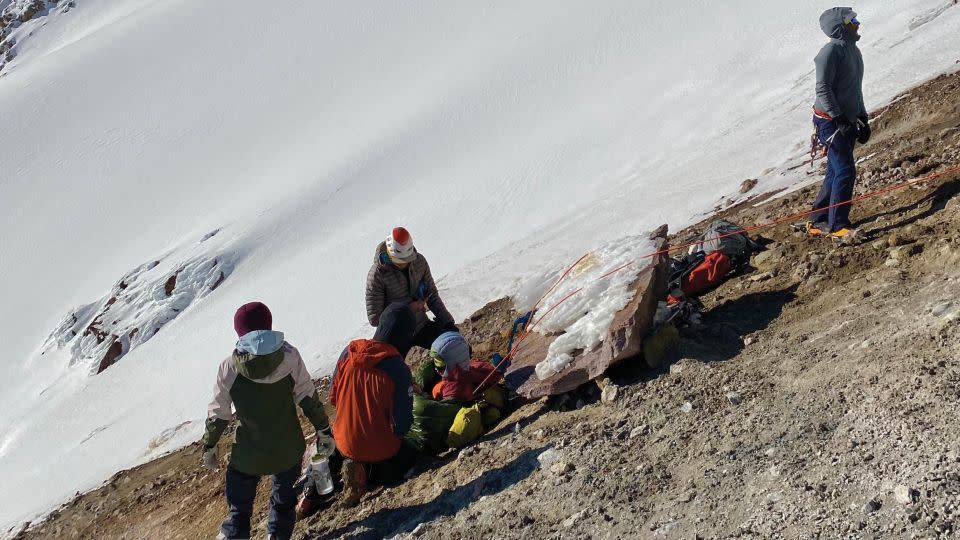A climber tumbled hundreds of feet down Oregon’s highest peak. Volunteer rescuers happened to see it - and saved her life
A 36-year-old woman slipped and fell several hundred feet from Oregon’s highest mountain right before the eyes of a group of volunteer rescue workers who rushed to her aid – and helped save her life.
The woman was coming down a popular path on Mt. Hood, about 70 miles east of Portland, on Saturday morning, according to the Clackamas County Sheriff’s Office. Mt. Hood is the highest peak in Oregon, standing at roughly 11,240 feet.
The climber “slid and tumbled down the mountain for approximately 300-400 feet,” Brian McCall, a spokesperson with the sheriff’s office, told CNN.
The brutal fall was witnessed by members of Portland Mountain Rescue, a nonprofit volunteer organization focused on helping people in mountainous areas. The group called 911 and rushed to the woman, helping stabilize her and “provide initial medical care,” the sheriff’s office said.
Additional groups of rescuers arrived and helped keep the woman warm for seven hours as officials worked to get her off the mountain safely, authorities said.
The climber, Leah Brown, told CNN in an email she doesn’t know what caused her fall.
“This is the part I don’t remember,” Brown said. “I can only guess it was either an ice tool or a crampon (the steel spikes on climbing boots) that didn’t land and stick like it should have and I became detached from the mountain.”

In a Facebook post, Portland Mountain Rescue wrote the woman’s injuries “prevented self-rescue,” adding their members worked with the Crag Rats group, also an all-volunteer, nonprofit organization.
Authorities created “complex rope systems” and transported the climber with a litter - a type of stretcher typically used to evacuate victims in difficult situations. The woman was eventually evacuated to a parking lot at 9:30 p.m. and taken to a hospital, according to the sheriff’s office, which also took part in the rescue.
Authorities did not share further information about the nature and extent of the woman’s injuries. Sheriff’s office spokesperson Sgt. Ross Clemson told CNN the woman was treated and released from a local hospital.
Brown told CNN she was diagnosed with a concussion and had multiple bruises on her arms and legs but said, “Otherwise, I’m okay.” Brown said she did not break any bones.
“The thing I’d like to most stress is my appreciation and gratitude for the folks from PMR (Portland Mountain Rescue) and Hood River Crag Rats who evacuated me and took incredible care of me the whole time,” Brown said.
“I owe them my life.”
In a statement after the rescue, Portland Mountain Rescue warned of the dangerous winter conditions at the mountain.
“The short days and lower temperatures mean that the snow tends to be very hard and icy, and the route conditions tend to be much steeper and technical. Also descending the mountain in icy conditions is much more difficult than ascending,” the group said.
“Only those with expert mountaineering and ice climbing skills should attempt Mt. Hood in winter, especially when there have been long dry spells with no precipitation. Appropriate and thorough training is critical,” it added.
For more CNN news and newsletters create an account at CNN.com

